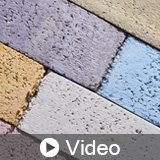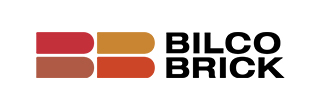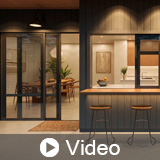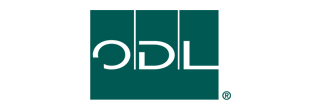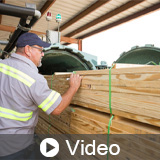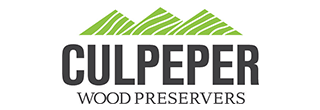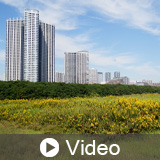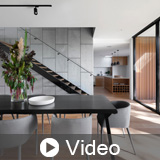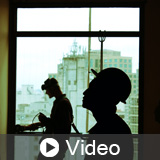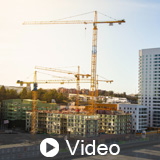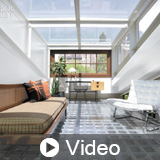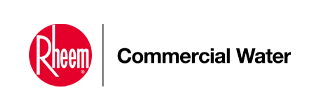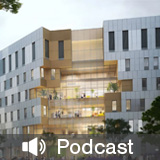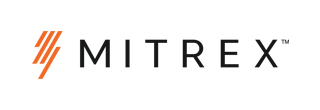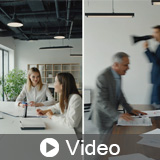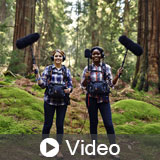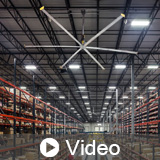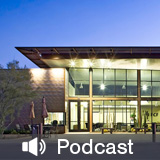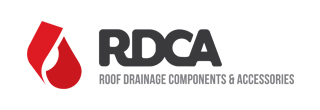Digital overload is quietly undermining occupant health—and buildings are part of the problem. This course shows how design professionals can turn that challenge into a powerful opportunity. You’ll learn how to design “digital detox zones” that measurably improve focus, reduce stress, and enhance well-being using LEED and WELL strategies. This course goes beyond theory to show exactly how wellness-driven design decisions support acoustics, daylighting, and integrative process documentation.
$45.00 |
|
You're standing at the intersection of design and destiny. With buildings generating 40% of global carbon emissions, every material you specify and system you design shapes our planet's future. This intensive course transforms that responsibility into opportunity, equipping architects, engineers, and interior designers with practical decarbonization strategies for LEED v4.1.
$45.00 |
|
Concrete brick has often been overlooked, yet it delivers many of the qualities that architects have been looking for all along. With the same familiar look and installation process as clay brick, concrete brick adds advantages that make it a strong option for today’s projects. This course explores how concrete brick is made, how it compares to clay brick, and why its performance, sustainability data, and warranty benefits are getting the attention of design professionals.
FREE |
|
Architectural glass and window technologies have evolved significantly, shaping how buildings perform, protect occupants, and promote sustainability. This course provides architects with a comprehensive overview of glass innovations, performance ratings, and sustainability considerations that directly impact health, safety, and welfare of occupants. Participants will examine the evolution of glass and window technology, the fundamentals of FGIA/AAMA performance ratings, and the integration of blinds within insulated glass units for improved daylighting, glare control, and occupant comfort.
FREE |
|
This one-hour course describes Southern Yellow Pine’s impact on building structures historically and today, listing its sustainable attributes and characteristics. This course also examines how the by-products and waste of SYP are reusable and compares the life cycle assessment of SYP to other building materials.
FREE |
|
In this course, we describe how design professionals can achieve the LEED v4.1 BD+C Sensitive Land Protection credit and reduce environmental impacts for building sites. We review sensitive land areas including wildlife habitat, wetlands, prime farmland, floodplains, and water bodies.
$45.00 |
|
In this course, we describe how design professionals can achieve the LEED v4.1 BD+C and O+M Rainwater Management Credit. In addition, we discuss green infrastructure and low-impact development strategies and how they can help for project sites.
$45.00 |
|
In this course, we explain how to achieve the LEED v4.1 BD+C and ID+C MR: Sourcing of Raw Materials credit and how to specify environmentally friendly building materials. We review FSC certification, recycled content, and how bio-based materials could change the future of construction.
$45.00 |
|
In this course, we explore strategies to improve indoor air quality and how to achieve the LEED v4.1 BD+C and ID+C EQ Low-Emitting Materials credit. In addition, we review the applicable requirements such as (CDPH) Standard Method v1.2–2017. Finally, we discuss how buildings with excellent indoor environmental quality protect the health of building occupants.
$45.00 |
|
In this course, we explain how design professionals can achieve the LEED v4.1 BD+C Indoor Water Use Reduction Prerequisite. We discuss strategies to help reduce potable water use in buildings such as specifying WaterSense labeled products. In addition, our team discusses challenges regarding the nation’s water supply and the need to update water infrastructure.
$45.00 |
|
In this course we describe how project teams can use Environmental Product Declarations (EPDs) for LEED v4.1 projects. Our team describes the environmental impacts referenced in EPDs and how these impacts may affect the planet and its inhabitants. We discuss how EPDs can contribute to the LEED v4.1 BD+C, ID+C, and O+M ratings systems to create sustainable buildings.
$45.00 |
|
Over the next 50 minutes, we’ll explore new expectations for hygiene, sustainability, and cost-efficiency in commercial restrooms, using real-world examples and data to support best practices.
FREE |
|
This one-hour course examines the integration of glass into walkways and stair systems with a focus on safety, performance, and sustainability. Participants will gain insight into the structural characteristics and design considerations that ensure glass flooring systems meet both aesthetic and functional goals. Discussion topics include glass types, slip resistance, structural supports, and detailing practices that enhance occupant safety and comfort.
FREE |
|
Designing public handwashing solutions that are code compliant, that are reliable as well as water and energy efficient, can present several challenges to both the architect and plumbing engineer. Join us in this one-hour course as we discuss current plumbing codes, public health agency guidelines, and regulatory statutes regarding handwashing and water heating. Participants will learn about the differences between various water heating technologies and what makes tankless electric water heating systems ideal for handwashing applications.
FREE |
|
When it comes to water heating systems, plumbing design professionals need to find the perfect balance between performance and efficiency. Join us in this one-hour course as we discuss how electric tankless water heater (ETWH) systems can increase efficiency, sustainability, and safety. Participants will not only learn how ETWH can help facilitate compliance with service water heating codes but also how to apply this water heating technology in a variety of commercial and residential applications.
FREE |
|
This course explores the integration of Building-Integrated Photovoltaics (BIPV) into modern architectural design as both a functional energy source and a defining aesthetic feature. Participants will learn how BIPV systems can transform façades into renewable-energy generators while maintaining compliance with critical safety standards and design codes.
FREE |
|
Your brain is lying to you about sound. What you hear isn't what's actually there—it's a carefully constructed illusion your neural circuitry builds in milliseconds. Welcome to the hidden dimension of architecture. This course cracks open the secret world where neuroscience collides with building design. You'll discover why certain rooms make people anxious without knowing why. How a hospital corridor can accelerate healing—or slow it down. Why your open office design might be sabotaging productivity at the cellular level.
$45.00 |
|
There's a phantom haunting your LEED buildings. It sabotages productivity. Triggers stress. Tanks satisfaction scores. Yet it appears on no energy model, no daylighting analysis, no material specification. Sound—the forgotten dimension—is writing the soundtrack of failure in even your best projects. Discover how composer R. Murray Schafer unlocked the hidden science of acoustic ecology in the 1960s, and why his innovative framework is the missing key for many sustainable design projects.
$45.00 |
|
This course provides architects and design professionals with practical guidance on integrating ceiling fans into HVAC system design to enhance energy efficiency, occupant comfort, and long-term building performance. Participants will examine how strategic air movement supports thermal comfort, reduces HVAC loads, and contributes to material and cost savings. The course also reviews selection, layout, and coordination strategies that promote resilient and sustainable building systems.
FREE |
|
Commercial roof drainage systems are often treated as an afterthought in building design, yet their role in protecting occupant wellness is critical. This podcast course explores how design professionals can make informed decisions when specifying gutters, downspouts, brackets, and related components to ensure both performance and aesthetics. Listeners will gain insights into evolving codes and standards, material and climate considerations, recyclability, and the importance of precise specifications in preventing waste, water intrusion, and structural failures.
FREE |




